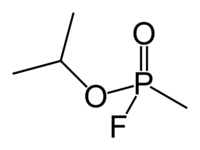
Wednesday, August 23, 2006
The Daily Hump: Serendipity
 ser·en·dip·i·ty (sĕr'ən-dĭp'ĭ-tē)
ser·en·dip·i·ty (sĕr'ən-dĭp'ĭ-tē)n.Usage note: Serendip should not be confused with sarin dip. In fact, if you find yourself around a sarin dip it's most likely not serendipity.
1. The faculty of making fortunate discoveries by accident.
2. The fact or occurrence of such discoveries.
3. An instance of making such a discovery.
We are indebted to the English author Horace Walpole for the word serendipity, which he coined in one of the 3,000 or more letters on which his literary reputation primarily rests. In a letter of January 28, 1754, Walpole says that "this discovery, indeed, is almost of that kind which I call Serendipity, a very expressive word." Walpole formed the word on an old name for Sri Lanka, Serendip. He explained that this name was part of the title of "a silly fairy tale, called The Three Princes of Serendip: as their highnesses traveled, they were always making discoveries, by accidents and sagacity, of things which they were not in quest of...."
[From the characters in the Persian fairy tale The Three Princes of Serendip, who made such discoveries, from Persian Sarandīp, Sri Lanka, from Arabic sarandīb.]
[The American Heritage® Dictionary of the English Language, Fourth Edition]
 Sarin's etymology is rather interesting in itself:
Sarin's etymology is rather interesting in itself:Sarin was discovered in 1938 in Wuppertal-Elberfeld in the Ruhr valley of Germany by two German scientists while attempting to create stronger pesticides; it is the most toxic of the four G-agents made by Germany. The compound, which followed the discovery of the nerve agent tabun, was named in honor of its discoverers: Gerhard Schrader, Ambros, Rüdiger and Van der LINde.Suggested reading:
The Three Princes of Serendip [The Living Heritage Trust]
The Three Princes of Serendip [Wikipedia]
Sarin [Wikipedia]
Labels: Arabic, Persian, The Daily Hump
:: posted by David, 8:37 AM